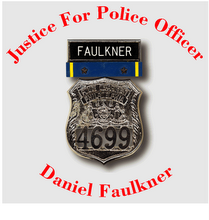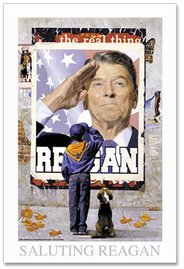LA Daily News
Report shows response times slow, court overtime up
BY RICK ORLOV, Staff Writer
A new report showing that the LAPD's flexible work schedule has slowed response times and boosted court overtime revived debate Monday over the effectiveness and value of the agency's three-day, 12-hour workweek.
City Councilman Bernard Parks - who was police chief when the 3/12 schedule was adopted over his objections in 2001 - said he believes that the report from City Administrative Officer Bill Fujioka demonstrates the program has failed.
"Response times are higher, we have fewer officers on the street and I don't believe it has done anything to either help us keep officers or hire new ones," said Parks, who wants the Los Angeles Police Department to return to a traditional workweek.
Parks' successor, Bill Bratton, said he would not defend the 3/12 program - which is wildly popular among officers - but wouldn't criticize it, either. Roughly 70 percent of the LAPD officers work the 3/12 shift, with most of the others working 10-hour shifts four days a week.
"It is something we have to deal with," Bratton said. "It does make it difficult but you have to look at what's been accomplished since it took effect. Crime is down, way down, over the past four years. Officer morale is up and citizen satisfaction is up.
"It's kind of like that old commercial, `Where's the beef?'
"The long-term answer to our staffing problem is hiring the 1,000 more officers that the mayor wants. As a matter of fact, under 3/12, we are able to have the equivalent or more officers on the street."
Bratton said he could resolve manpower shortages immediately if the City Council budgeted more money for LAPD overtime. This year's budget includes $76.4 million for overtime for roughly 9,000 sworn officers, compared with $107 million for the Fire Department, which has 3,000 firefighters but mandates full staffing.
"The fact is they have more overtime money available for full staffing than I do," Bratton said. "We could dramatically increase the number of officers on the street by paying more overtime."
And Mayor Antonio Villaraigosa, who opposed the 3/12 plan when he was on the City Council, said he does not want to change it now.
"At this point, it is part of the department's benefit package," spokesman Joe Ramallo said. "The mayor is concerned that dropping it could jeopardize our ability to hire 1,000 new officers, so he wants to keep it in effect."
Fujioka's report did not make any recommendations, but laid out a variety of divergent findings:
Overtime paid to officers who have to testify in court on their off-duty days has jumped 8.5 percent, while those required to stay on duty after their shift ends has dropped by 4.4 percent.
The number of hours officers are off duty because of illness has increased because of the calculation of longer shifts, even as the number of officers calling in sick has dropped.
So-called Part 1 crimes - murder, rape, robbery and aggravated assault - have increased 1.7 percent, but violent crimes, which include other offenses, have dropped 5.2 percent.
Response times went from 10.2 to 6.7 minutes for emergency calls; 8.5 minutes to 11.5 minutes for nonemergency calls, and 18 minutes to 26.9 minutes for routine calls.
The LAPD changed its response system in May 2004, expanding the type of crimes that warranted a lights-and-sirens response to a 911 call. Fujioka said he did not determine how much the change in procedure impacted his findings.
Fujioka could not determine whether the 3/12 schedule had impacted recruiting.
But Councilman Dennis Zine, a retired police officer and director of the Los Angeles Police Protective League, said he was convinced the flexible work schedule had helped retain officers.
"I think this report shows we have to continue with 3/12," said Zine, who also is a member of the City Council's Public Safety Committee.
"If we stop this, we will lose thousands of officers working for us now and not be able to hire new officers."
Phyllis Lynes, who oversees police hiring for the Personnel Department, said there is no way to determine whether the 3/12 schedule impacts recruiting and retention efforts.
"Every month is a struggle to get applicants," Lynes said. "I would have to believe it is helpful to offer it since other police agencies have it as well. It is just part of what you have to do to attract candidates."
Bratton said he believes that as long as other law enforcement agencies offer a flexible work schedule, the LAPD needs to be competitive.
"My goal is to see us hire all the officers we need and the fact is we are faced with what other cities are offering and that is part of it," Bratton said.
But Parks said the Los Angeles County Sheriff's Department and other agencies are abandoning their 3/12 programs.
"I recognize that officers like this, because it gives them so much time off," Parks said. "But the question is: Who are they working for? They work for the city and their job is to provide for public safety."
Officials with the Los Angeles Police Protective League have said they are not prepared to give up the flexible schedule and will insist that any changes be negotiated.
"Crime rates are down in Los Angeles, officers are working more hours and have improved morale," PPL President Bob Baker said.
"The report from the city administrative officer does not look at the flexible work schedules in the context of outside influences. We are confident the City Council will agree with us that it has been a positive change for the LAPD."
rick.orlov@dailynews.com
Winchester Releases RANGER ONE LE Ammo
6 years ago














2 comments:
thanks for the info. Does anyone know what the fop is going to ask for on the next contract. I know insurance is a big thing and retirement but what else???
Post a Comment